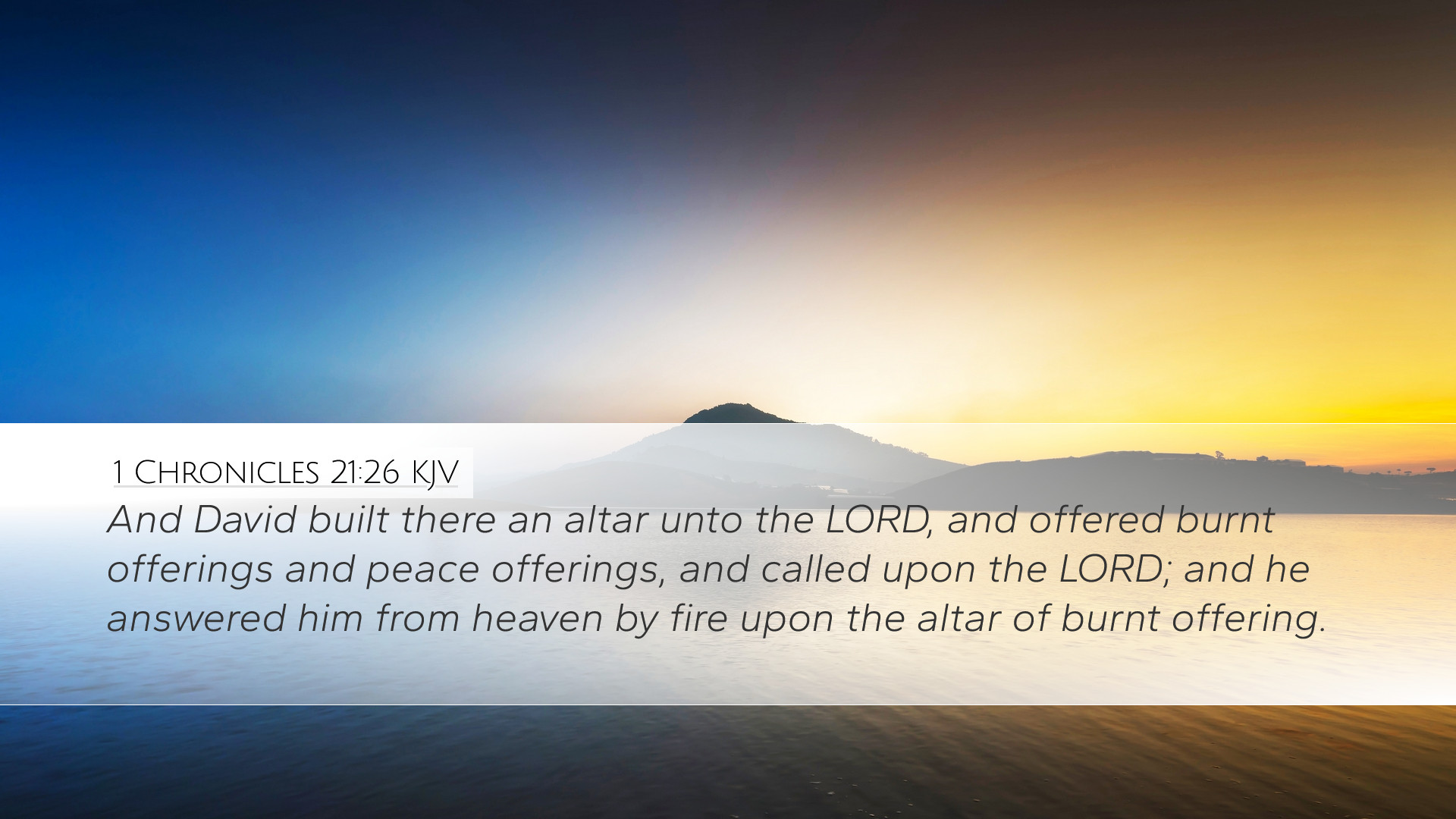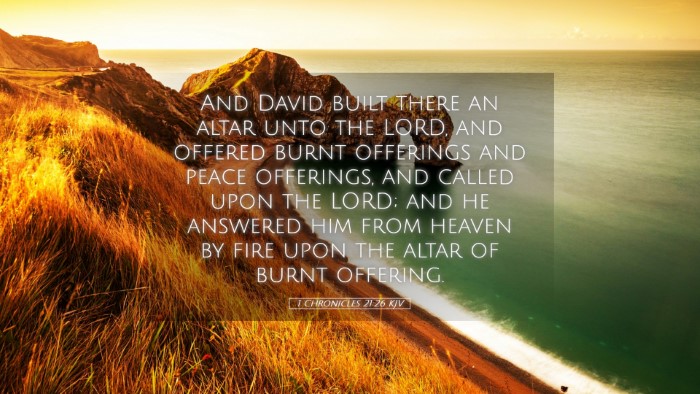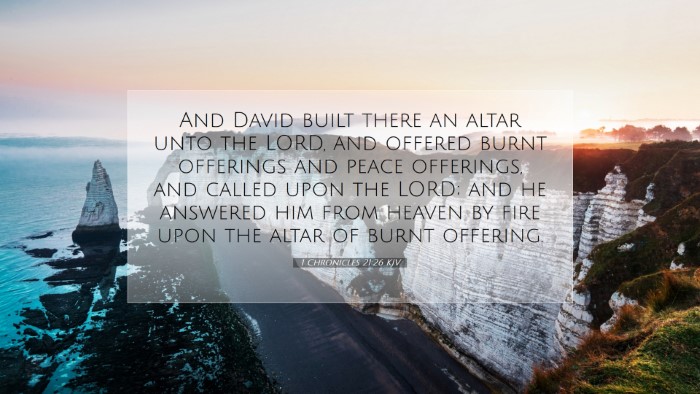Commentary on 1 Chronicles 21:26
Text of the Verse: "And David built there an altar unto the LORD, and offered burnt offerings and peace offerings, and called upon the LORD; and he answered him from heaven by fire upon the altar of burnt offering."
Introduction
This verse marks a significant moment in the life of King David and reflects deep theological implications regarding worship, sacrifice, and divine response. In the wider context of Israel's history, it serves as a poignant reminder of the relationship between the people, their king, and their God.
Contextual Background
1 Chronicles 21 chronicles a pivotal event involving David's census of Israel, which provoked God's anger. Following the instructions of the prophet Gad, David acknowledges his sin and seeks a means of atonement. This verse captures the culmination of his repentance and his act of worship at the threshing floor of Ornan the Jebusite, which would later become the site of the temple.
The Importance of the Altar
David's construction of an altar is significant for several reasons:
- Symbol of Repentance: As Matthew Henry states, the altar symbolizes David's turn towards God in repentance. It represents a physical act of contrition and dedication.
- Covenantal Significance: Adam Clarke emphasizes that the altar is a means through which the covenant relationship between God and His people is reinforced.
- Biblical Precedent: Albert Barnes points out that altars throughout scripture represent places of divine encounter, where human beings can seek communion with God.
Offerings Made and Their Meaning
The offerings David presents—burnt offerings and peace offerings—carry rich symbolic meanings:
- Burt Offerings: These offerings symbolize complete surrender and dedication to God. As noted by Henry, they demonstrate the entirety of the worshiper being offered to God.
- Peace Offerings: Clarke observes that peace offerings reflect the concept of fellowship with God. They signify reconciliation and the restoration of harmony between the Creator and creation.
Divine Response
The verse concludes with a powerful affirmation of divine responsiveness: "and he answered him from heaven by fire upon the altar of burnt offering."
- Divine Acceptance: Barnes interprets the fire descending from heaven as God's approval of David's offerings. It signifies that God not only hears but also accepts the worship of His people.
- Manifestation of Glory: According to Henry, God's answer in the form of fire is a manifestation of His glory and indicates His presence with His people in their worship.
Theological Implications
This episode has profound theological implications for understanding worship:
- The Nature of Worship: The act of building an altar and presenting offerings illustrates worship as both a personal and communal act of acknowledgment of sin, gratitude, and reverence toward God.
- The Role of Sacrifice: The significance of sacrifice in worship remains central in biblical theology. It prefigures the ultimate sacrifice of Christ and is foundational for understanding atonement.
- God's Initiative: Lastly, the passage underscores God's initiative in the relationship, exemplified in His willingness to answer David, showing that the effort to reach out to God ultimately derives from God Himself.
Application for Modern Believers
This verse provides valuable insights for contemporary Christians and scholars:
- Call to Repentance: David's example urges believers to approach God with humility and a repentant heart, recognizing the need for confession and commitment.
- Understanding Worship: The multifaceted nature of worship is showcased, calling for deeper engagement in both corporate and individual worship practices.
- Expectant Faith: Just as David experienced God's response to his offerings, so should believers approach God with expectant faith, believing in His active participation in their lives.
Conclusion
1 Chronicles 21:26 remains a powerful reminder of the importance of worship rooted in repentance, sacrifice, and a true encounter with the living God. As pastors, students, theologians, and scholars reflect on this text, they unravel layers of meaning that can inspire and enrich the faith community today.


